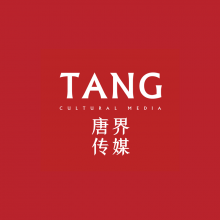
There are 5 Companies in China
that provide Broadcast Video Services!
China’s tech sector has grown significantly in the past two decades and is making a challenge for the US to keep its long-standing position of the world leader. Companies like Huawei, WeChat, Baidu, Tencent, Qualcomm among others consolidate the country’s efforts in becoming the next-generation leader in tech worldwide.
Discover Top IT Companies in China specialized in Broadcast Video including live streaming, video hosting, transcoding, equipment supply, support and maintenance and more.
Broadcasting involves delivering audio or video content to a wide audience through various electronic communication methods, usually utilizing radio waves. This distribution follows a one-to-many approach, reaching multiple people simultaneously. The “Traditional TV & Home Video” segment of the media market is expected to grow by 0.2 billion users between 2023 and 2027, reaching a new peak of 5.69 billion users in 2027. This marks a ninth consecutive year of growth, showcasing the market's continued growth over the past years, according to Statista.
Handpicked companies • No obligation to hire • 100% risk-free
Explore Top Broadcast Video Companies in China
Experts in Visual Content Creation, from our state of the art studio in Shanghai can produce engaging photos, videos and 3D content for your brand.
Founded in 2022 and headquartered in Foshan, Guangdong, China, Wisray Studio is a software development company serving the world.
Unit LED is a professional LED display manufacturer, that designs, produces and provides professional LED display screens and solutions.
Tang Cultural Media is an important part of the success of international brands in China and the development of Chinese brands.
Filter Broadcast Video Companies in China by Cities
Find the right tech company near you or from a specific city. Some of the best companies might be located in smaller cities.
Find more Broadcast Video companies around the world
TechBehemoths is the world's most advanced and user-friendly platform to match IT Companies with real clients without hustle.
The Chinese Tech Industry: Companies and IT Industry Overview
China’s tech sector has grown significantly in the past two decades and is posing a challenge for the US to keep its long-standing position as the world leader. Companies like Huawei, WeChat, Baidu, Tencent, Qualcomm, among others, consolidate the country’s efforts in becoming the next-generation leader in tech worldwide. Lately, China and the US are battling for the 5G technology leadership, and the competition leads to an economic war that involves sanctions and restrictions for companies on both sides.
Mainly, there are three pillars of China’s tech sector growth: venture capital, innovation, and a distinct entrepreneurial culture. All these, with governmental support, managed to transform China from a mass manufacturer into a tech giant.
At the same time, Alessandro Cormio from Naturality states that China has a rapidly growing market for IT products and services, with a large and increasingly tech-savvy population. The Chinese government has invested heavily in developing its own tech industry, which has led to a vibrant and innovative tech ecosystem. However, there are also significant challenges. Chinese consumers have started to shift their preferences towards domestic brands, making it more difficult for foreign companies to gain a foothold in the market. In addition, habits and the market in general are very different to handle and develop when compared to the West. I always suggest NEVER trying to enter this market with the same strategy and approach as Western countries.
Why You Should Work With Chinese It Companies
As mentioned above, one of the three pillars of China’s tech sector is distinct entrepreneurship. In China, IT companies and businesses in general work differently from the traditional Western style. It’s about social digitalization, where companies don’t need direct human interaction anymore - everything can be done remotely. Even though freelancing is a very well-known practice in the West, Chinese IT companies use corporate freelancing, allowing professionals to focus on project tasks from different parts of the country.
Chinese companies don’t have any more language barriers when it comes to communication, and project management is at its highest. Tech specialists are doing their job properly and fulfilling the exact requirements and instructions mentioned by clients. Honestly, this is no surprise, since discipline is in the Chinese blood for centuries.
Another reason for working with Chinese IT companies may be an abundant workforce. While European and US markets mainly confront a workforce shortage, it’s not the same for Chinese companies, where tech specialists are struggling to get a place in an IT company.
What Should You Be Aware of When Working With Chinese IT Companies?
On the other hand, the government controls all business processes, especially with foreign clients and investors. As a potential client, you will meet certain bureaucratic barriers that will cut the business’s appetite. The number of papers that need to be signed overlaps several times, and the number of papers you need in Europe and the US. But after having everything done, all will go smoothly.
The prices may vary from region to region and company to company. It depends on how well a region or a company performs on the national level, which still remains the main indicator for Chinese IT companies in terms of notoriety. That is a good idea to be aware of what regions are likely to provide better services, and in which field.
To this answer, Alessandro Cormio adds that due to the very different market culture and habits of China, to better enter the market, companies need to be aware of how differently things work in China.
How Reliable Are Chinese IT Companies
The same thing we could say about reliability. Since the country has more than 15,000 IT companies, it wouldn’t be fair to rate all companies under the same figures. Companies located in more developed regions and cities perform better, are more reliable, and have a higher credibility rate, while other companies from less-developed regions and cities are nameless, and don’t have enough experience to rate their experience.
On the other hand, in China, a nameless company can become a world brand overnight. It depends on the product they are working on and the technologies used. Since innovation is the second Chinese tech pillar, any company can become famous, rich, or both if it uses the right combination.
How Does the Chinese IT Sector Relate to the Neighboring Countries?
The Chinese tech sector outnumbers all neighboring countries. However, in terms of general performance, it competes with the South Korean IT sector and the Japanese one. The internal market is enough for Chinese companies to grow and innovate, so, presumably, there is no big need for exporting IT services, like in the case of Korean and Japanese companies. However, contacting foreign entities empowers and stimulates the innovation processes in a country.
Chinese Business Environment: Complex But Rapidly Growing
China has a complex BUT rapidly evolving business environment. On one hand, it is the world's second-largest economy (projected to be NO. 1 in some years) with a rapidly growing consumer market. On the other hand, because of the significant state ownership and control, it turns out to be a challenging legal and regulatory environment. Working in marketing for Chinese companies looking to go overseas, it's also interesting to feel and understand the complexity and huge potential, on a scale, that this market has. China's rapid economic growth and expanding middle class offer significant opportunities for companies and talents willing to invest the time and resources to establish a strong presence in the market.
At the same time, the difficulty of opening a new IT company in China is appreciated as quite open, with wide possibilities, but it is getting more and more challenging.
How Does the Chinese Government Help the IT Sector?
While it's difficult to understand all subtleties and Chinese laws all of a sudden, Alessandro Cormio, the founder of Naturality Digital - a reputable IT company with offices in China, says that there are three main directions on this topic:
- Investment in research and development: AI and 5G on top of all.
- Support for entrepreneurship: Plenty of initiatives to support entrepreneurship and innovation, including tax incentives, funding for startups, and the establishment of innovation hubs and incubators.
- Encouragement of investment: establishment of special economic zones and other incentives to attract domestic and foreign companies.
Shenzhen and Shanghai - The Chinese Heaven for IT Companies
Shenzhen has been the fastest-growing city in the world in the last few years, and it keeps pushing forward. At the same time, Shanghai is the most populous and international city in China.
Alessandro considers that both should definitely be considered among the top cities in the world for IT development.
About the Chinese Local Talent Pool
Not too easy to answer this question. From my point of view, there's still a lack of people with high skills in certain things. Too many tend to specialize too much and follow a specific standard, not beneficial to flexibility and creativity.
This article was created together with Alessandro Cormio, the Co-Founder of Naturality Digital, which is one of the leading digital marketing agencies with offices in Italy, Switzerland, and China.
What is Broadcast Video and what are its benefits for your projects?
Broadcasting involves delivering audio or video content to a wide audience through various electronic communication methods, usually utilizing radio waves. This distribution follows a one-to-many approach, reaching multiple people simultaneously.
The “Traditional TV & Home Video” segment of the media market is expected to grow by 0.2 billion users between 2023 and 2027, reaching a new peak of 5.69 billion users in 2027. This marks a ninth consecutive year of growth, showcasing the market's continued growth over the past years, according to Statista.
Types of broadcasting video
The main broadcast media sources are television and radio, although they have been joined by streaming services, web-based broadcasts, podcasts, and other digital formats. Today there are several types of broadcast video:
Television
TV is an advanced broadcasting medium that provides a visually appealing experience for the public. It is crucial for businesses to present their products orally and provide comprehensive explanations. Television advertising effectively reaches the target audience, with cable TV advertising utilizing creative filming techniques to promote networks among middle-class households.
Advertising Films
Advertising films are commercial productions that showcase products using visual and auditory elements. They use catchy phrases and a comprehensive portrayal of the product, making them highly effective due to people's preference for visual media. Entrepreneurs often use promotional films to promote their goods due to their strong visual appeal and popularity among consumers.
Video Advertising
Video advertising, also known as sales video, differs from regular films in that they lack a story. Instead, these short clips are concise visual representations of business details. They can be shown in various places such as pubs and theaters, or displayed on roadside displays like 3D billboards. Additionally, broadcasters use drama and music to convey advertising messages to a wide audience.
Live-streaming
Live-streaming is an advanced internet broadcasting technique that transmits data in real-time, enabling businesses, brands, and advertisers to reach a wider audience, increase brand awareness, promote products or services, and generate new leads.
There are two types of live-streaming:
-
OTT Advertising (Over-The-Top): Targeted ads shown on streaming services like Amazon Prime and Netflix offer advertisers the opportunity to engage with cord-cutters and a younger age group.
-
Connected TV (CTV) Advertising: Smart TV advertisements provide consumers with interactive and tailored content.
Slides
Slides are essentially posters that showcase product information through the use of vibrant colors, visuals, and diverse typography. Typically presented on large screens within cinemas, they are typically shown during intermissions or before the start of a film. Unlike advertising films, slides are a cost-effective means of conveying information.
Benefits of Broadcast Video Service
Companies can gain a number of advantages by incorporating broadcast video services into their work, including:
-
This type of media is accessible and efficient for communication.
-
It reaches a broader audience and stands out within geographical boundaries.
-
Content can be tailored based on the preferences of the audience.
-
It provides high knowledge of different themes and trends.
-
It stands as a prime choice for endorsing products and services.
-
Broadcast media brings innovative and distinct ideas from the younger generations.
How to Choose a Broadcast Video Service Provider
TechBehemoths simplifies selecting the best broadcast video companies for projects by offering a directory of over 341 IT companies. The platform offers profiles, client reviews, and ratings to evaluate and compare providers. Advanced search filters narrow down options based on industry expertise, location, and project requirements, ensuring a tailored match for broadcast video needs. Broadcast video is crucial for brand growth and staying informed, promoting products or services, and is essential for today's world continued growth and importance.




